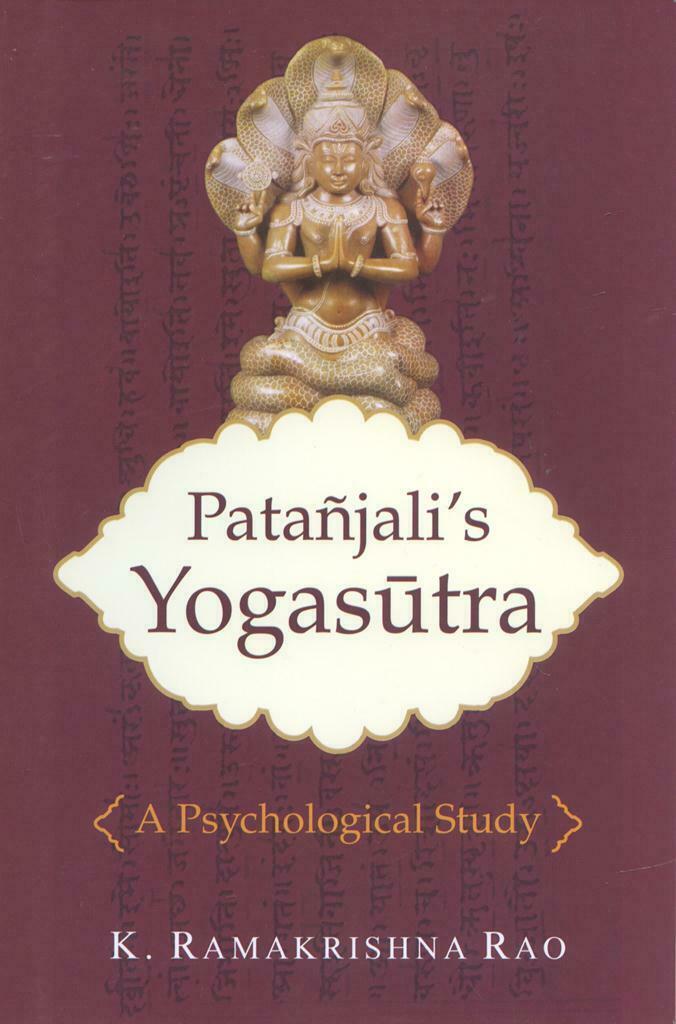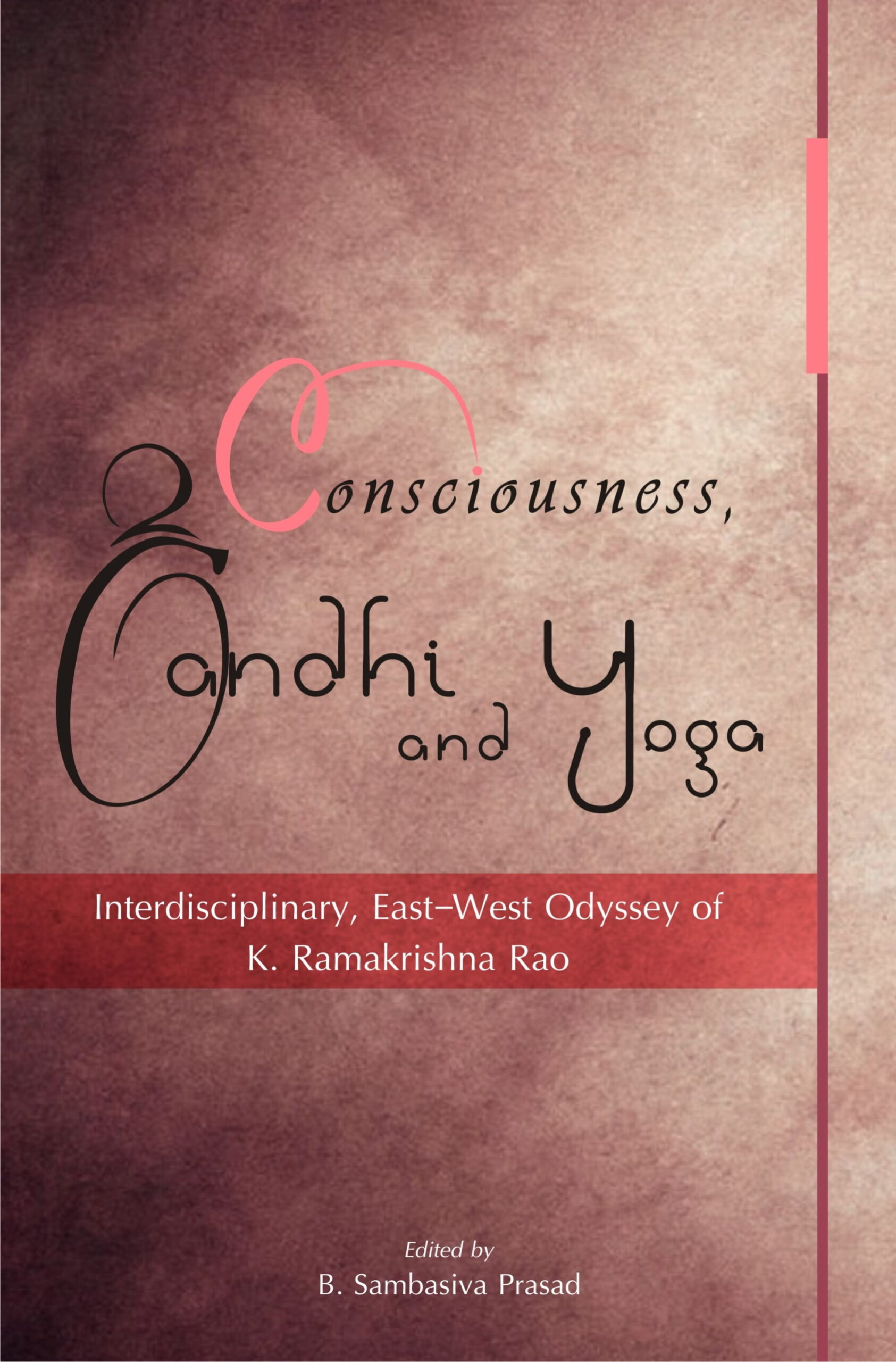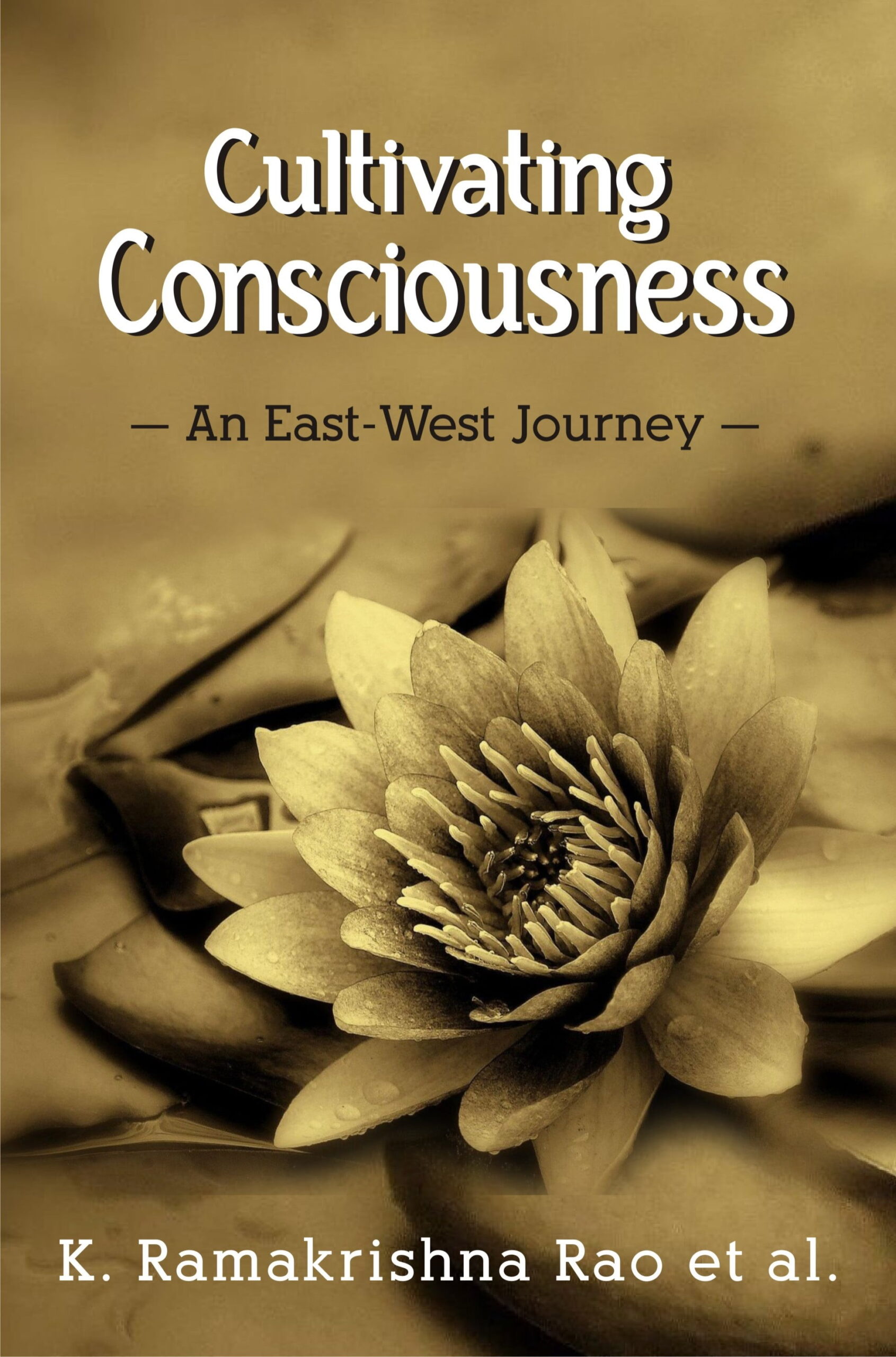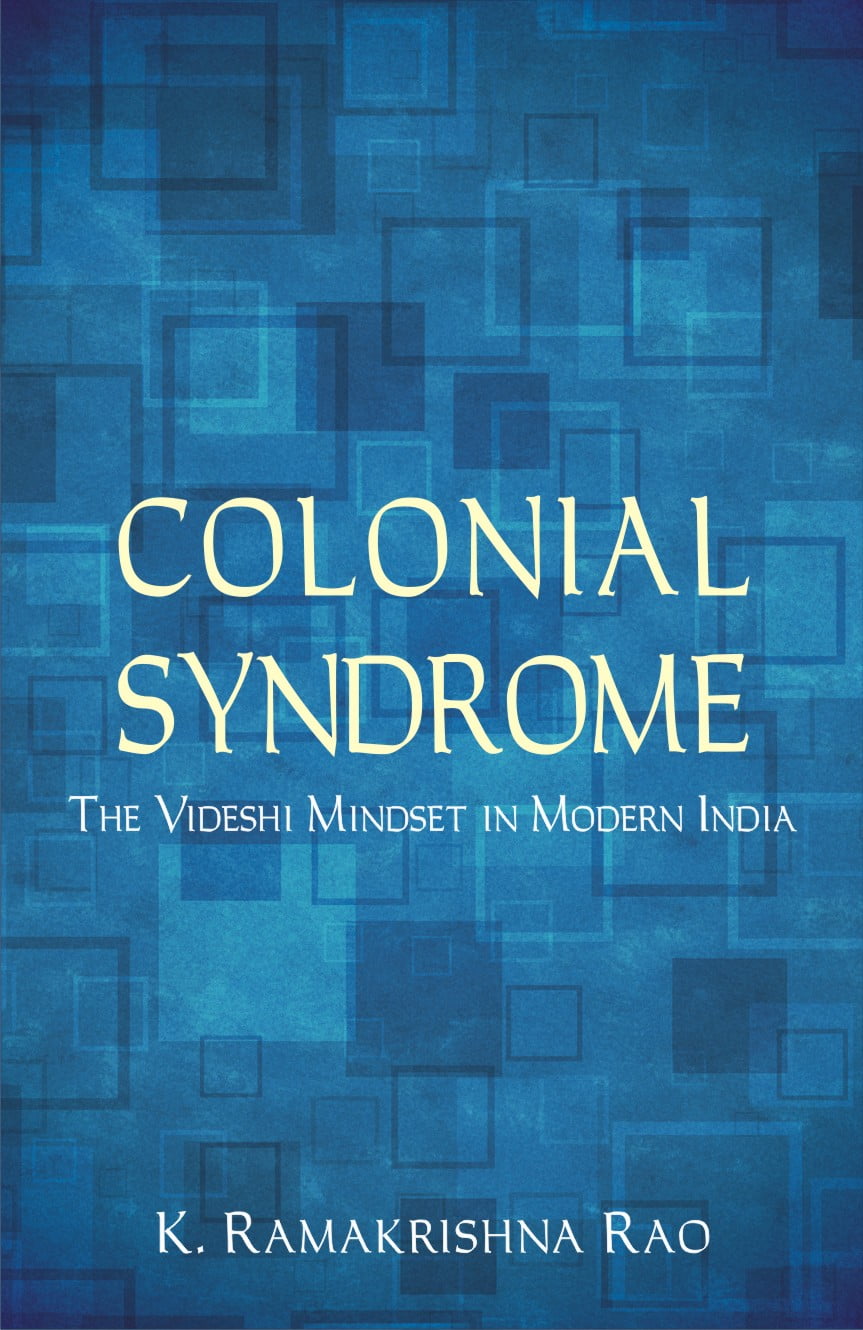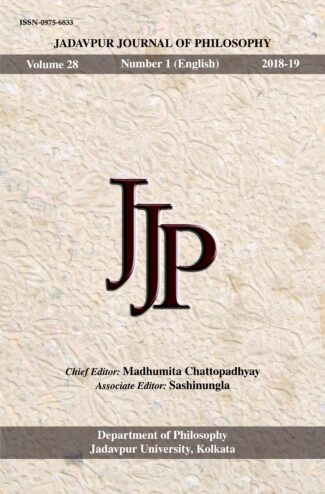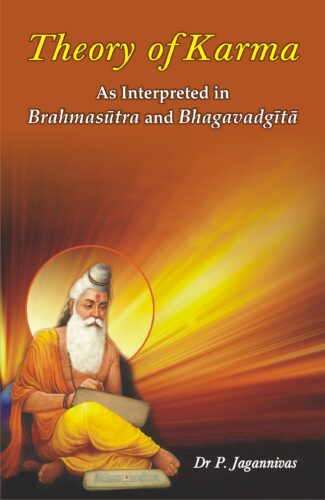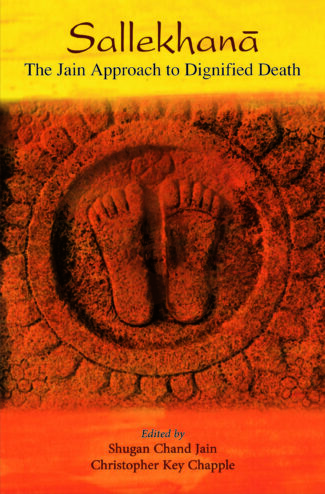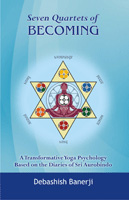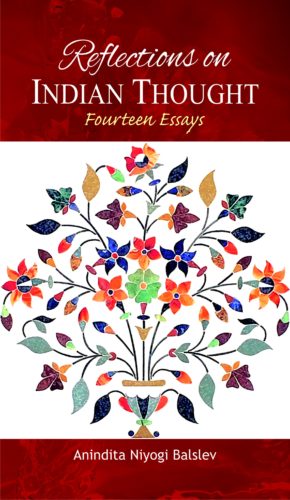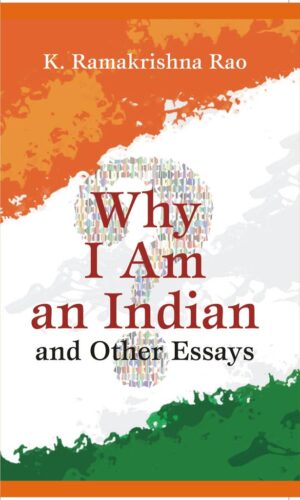

Why I Am an Indian a...
Why I Am an Indian and Other Essays
by: K. Ramakrishna RaoThis volume reflects the evolution and growth of Prof. K. Ramakrishna Raos thought and the different dimensions and shades of his academic pursuits, ranging from Gandhis thought to consciousness studies, educational issues, identity problems, parapsychology, and Indian psychology in general and yoga in particular.
Original price was: ₹2,400.00.₹2,160.00Current price is: ₹2,160.00.
ISBN: 9788124609293
Year Of Publication: 2019
Edition: 1st
Pages : xvi, 565p.
Bibliographic Details : Index
Language : English
Binding : Hardcover
Publisher: D.K. Printworld Pvt. Ltd.
Size: 23
Weight: 1100
This volume reflects the evolution and growth of Prof. K. Ramakrishna Raos thought and the different dimensions and shades of his academic pursuits, ranging from Gandhis thought to consciousness studies, educational issues, identity problems, parapsychology, and Indian psychology in general and yoga in particular.
While the topics covered appear to be very diverse and quite divergent, there is a common thread knitting them together; the thread is that the material covered is concerned with human nature. The crucial aspect of each of us is identity, which bestows on us individuality and separateness. It has its advantages and entails some problems as well. This book reflects on them from different perspectives, focusing mainly on the philosophical and psychological aspects in human functioning, and ones identity and unity with others.
Man is conceived as a composite of body, mind and consciousness. The discussion of these concepts hopefully sheds light directly or indirectly on the multiple problems concerning human nature and the associated difficulties in chasing them in real life and especially in ones academic pursuits.
Preface
1. Why I Am an Indian: Reflections on Indian Identity and National Integration
Identity
Multiple Identities and National Integration
Salience of Superodinate Identity
Demotivation and Desalience
Identity without Outgroup Negative Attributions
Positive Value Attributions to Outgroups
Crossed Categorization
Concluding Summary
2. Sarvepalli Radhakrishnan: Teachers Teacher
The Human Side
Philosopher of Religion
Normal and Paranormal Processes
Bridge Building
Teachers Teacher
3. Parapsychology
Background
Duke Experiments: Systematic Research
Some Confirmations
Process-Oriented Research
Personality and ESP
Belief and ESP
Psi and Sensory Noise Reduction
Psi-Missing and the Differential Effect
Theories of PSI
Criticism
Summary
4. Science and the Legitimacy of PSI
Introduction
Legitimacy in Science: Is It a Question of Method?
What Is the Thing Called Science?
Legitimacy of Parapsychology: What Should We Do?
5. Teaching of Parapsychology in Hindi and the Andhra Experiment
Teaching of Parapsychology in Ancient India
Parapsychology as a University Discipline in Modern India
The Making of a Parapsychologist
The Andhra Experiment
The Andhra Programme
6. Parapsychology and Yoga Theory and Practice
Background
The Challenges of Psi
The Relevance of Yoga Psychology
The MindBody Relation
Prajna and Siddhis
The Implications of Yoga Psychology for the Study of the Paranormal
7. Scope and Substance of Indian Psychology
Psychology of Transcendence/Enlightenment
Buddhist Psychology
Yoga Psychology
Pure Consciousness in Advaita
Core Concepts and Common Themes
Consciousness and Mind
Can We Observe Experience
Secular and Sacred Aspects
Conclusion
8. Indian Psychology: Its Many-sided Splendour
Introduction
Goal of Indian Psychology
Three Modes of Knowing
Mind and Consciousness
Applications of Indian Psychology
Conclusion
9. Indian Psychology: Implications and Applications
Religion and Spirituality
Science and Spirituality
Spiritual Psychology
Theoretical Base
Theory to Testing
Implications and Applications
Understanding Extraordinary Human Experience
Implications for Health and Wellness
Distant (Remote) Intercessory Prayer
Conclusion
10. YogaAdvaita Psychology: An Inclusive Psychology for the Future
Introduction
Principles of Indian Psychology (Bharatiya Jiva-shastrasatra)
Complementary of Advaita and Yoga
Connection between Consciousness and Mind
Multiplicity of Purushas
Conclusion
11. The Relevance of Philosophy to life in the Twenty-first Century
The Context
Problems Areas
12. Taxanomy of Consciousness
Introduction
States of Awareness
Waking States
Primary Awareness
Peripheral Awareness
Paradoxical Awareness
Pathological Awareness
Paranormal Awareness
Altered States of Consciousness
Dreaming
Daydreaming and Hypnagogic Imagery
Hypnosis
Meditation
Multiple Personality or Dissociative Identity Disorder
Pure Conscious States
Mystic Awareness
Contentless (Non-Intentional) Conscious States
Varieties of Awareness
Taxonomy of Consciousness
States of Consciousness in Hinduism
The Waking State (Jagrit)
Dreaming State (Svapna)
Deep Sleep State (Sushupti)
The Fourth State (Turiya)
Buddhist Phenomenology of Consciousness
Consciousness and the Unconscious
Elements of Consciousness (Cetasikas)
Four Forms of Consciousness
Conclusion
13. Consciousness and Cognitive Anomalies
What Is Consciousness?
Consciousness as Awareness
Physical Explanations of Consciousness
The Reality of Psi
The Evidence
The Conclusive Experiment
Replication of ESP Experiments
ESP and Sensory Noise Reduction
Natural Explanation of Psi
Sceptical Explanations of Psi
Physical Explanations of Psi
Electromagnetic Theories
Observational Theories
Psychological Models
Paranormal Explanation of Psi
Subliminal Self
The Shin Theory
Consciousness and Psi
Normal and Paranormal Processes
The Two Aspect of Psi
Double Aspects of Consciousness
Conclusion
14. Spirituality and Consciousness
What Is Consciousness
Consciousness as Awareness
The Four Ps of Consciousness
What Is Science?
Science of Consciousness
The Case of Spirituality
The Case of Distant (Remote) Intercessory Prayer
The Common Ground
Knowing and Being: Science and Spirituality
Science, Consciousness, and Spirituality
15. Meditation and MindMatter Interface
What Is Meditation?
Yoga Meditation as a Technique
Buddhistic Meditation as a State
Contemporary Interpretations
Some Meditative Techniques Used in Research
Transcendental Meditation
Bensons Technique
Carringtons CSM
Meditation as Deployment of Attention
Studies of Meditative States
Is Meditation a Unique Physiological State?
Meditation and Arousal
Meditation and Psi
Conclusion
16. PSI and Self
Philosophy of Self
Psychology of Self
Parapsychology and Self
Expanded Concepts of Self
Expanded Awareness and Existence of Psi
Awareness As-Such
Conclusion
17. Religiosity and Sense of Well-being: Spiritual Dimensions of Health
Beginning of Systematic Research
The Case of Distant (Remote) Intercessory Prayer
Meditation and Prayer
Research Possibilities
18. Some Reflections on Religion and Anomalies of Consciousness
On Religion
On Parapsychology
On the Parapsychology of Religion
19. Violence and Identity
Introduction
Taxonomy of Violence
Aggression and Violence
Evolutionary Roots of Violence
Psychological Structure of Violence
Fruits (?) of Violence
Identity and Violence
Identity Violence
Identity and Conflict
Behavioural to Structural Violence
Gandhi on Violence
Gandhis Practical Idealism
Gandhis Political Philosophy
What Is Satyagraha?
Does Satyagraha Really Work?
How Does Satyagraha Work?
Violence and the Moral Imperative of Nonviolence
Gandhi and Ambedkar
Concluding Summary
20. Violence and Nonviolence in Gandhis Philosophy of Life
Introduction
Gandhi on Violence
Implications
21. Tryst with Indian Psychology
Index
Name Index






